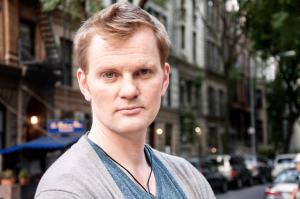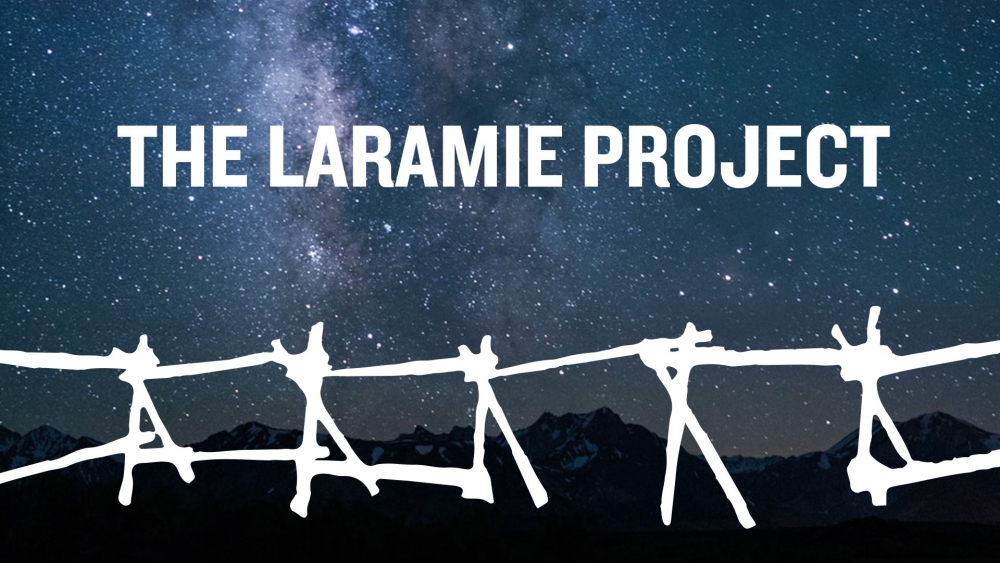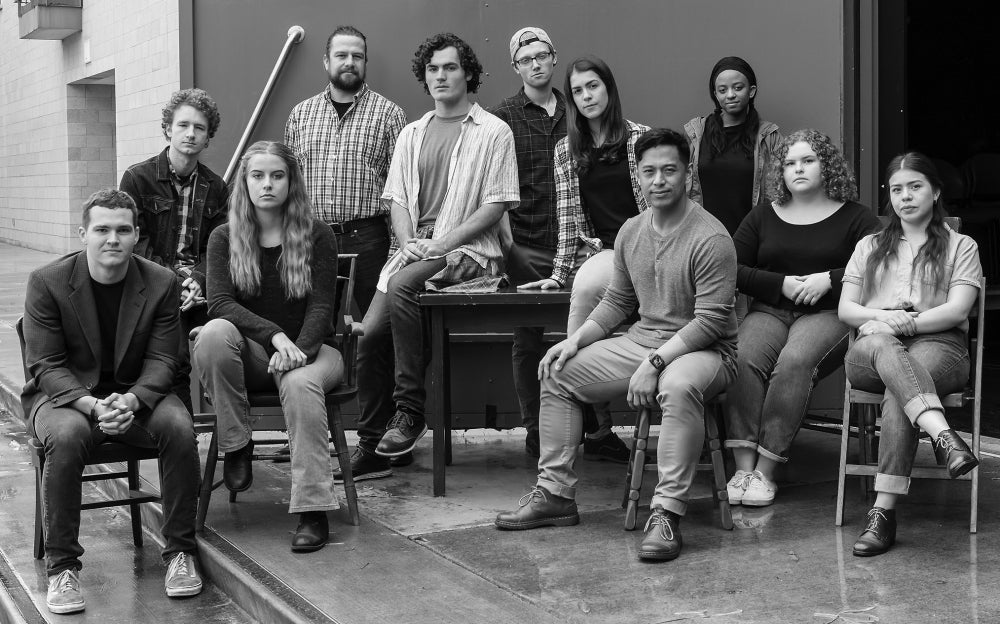Theatrical Legacy of a Hate Crime

In October 1998, Matthew Shepard was brutally killed in what became the most high-profile homophobic hate crime in U.S. history. That same month, less than 700 miles to the east, Eric Jorgensen was coming out to his closest friends.
Both men were university students: Shepard at the University of Wyoming in Laramie, Jorgensen at Drake University in Des Moines, Iowa. They were also the same age: 21. Shepard died at the hands of two men he met at a bar, who were offended by his sexual orientation. Jorgensen went on to become an actor, director and theater scholar.
“The day that Matthew was tied to a fence and left to die — that could have been me, or any number of people I knew,” said Jorgensen, today a Ph.D. candidate at UC Santa Barbara. “A generation of us will never forget what happened. But its impact is not limited to us, because of this play.”
That play is “The Laramie Project,” a docudrama created by Moises Kaufman and his Tectonic Theatre Project in the months immediately following the tragedy. Still a vital and powerful piece of theater nearly two decades after its 2000 premiere, it will be staged by the UC Santa Barbara Department of Theater and Dance March 1-9 in the campus’s Hatlen Theater. Jorgensen will direct.
The production will be preceded Friday, Feb. 22, by a symposium, “The Laramie Legacy,” during which Judy Shepard, Matthew’s mother, will join a panel of academics to discuss the incident and its meaning two decades later. The symposium, also in Hatlen Theater, begins at 6 p.m. It is free and open to the public.
“We owe a lot to this play,” Jorgensen said. “It has become the primary cultural documentation of this terrible event, which was a watershed moment for the LGBTQ community, and the fight against hate. Matt was certainly not the only victim of that type of hate crime — not even in that year. But the country was ready to wake up and take notice.”
And take notice it did. “The Laramie Project” was, for several years, one of the most frequently produced plays in America. In 2002, it was adapted into a well-received TV movie for HBO. It is credited with helping Americans to understand the bigotry and hatred aimed at so many gays and lesbians, and for the remarkable shift in attitudes that followed.
Many works of art claim they were ripped from the headlines; this one truly was. “The attack happened on Oct. 6,” Jorgensen noted. “Matt died on the 12th. Within a couple of weeks, Kaufman decided his company should go to Laramie, talk to people in the community, and see if the material they gathered could be pieced together into a work of theater. They were there within weeks, and kept coming back over the course of the next year, through the trials of the two killers. They took it to heart that it was their job to get this story right.”
In the original production, eight actors played both themselves and the Laramie residents they interviewed about the incident and the town’s reaction to it. The UC Santa Barbara production features a cast of 11, “but it’s in the spirit of the original conception of the play, where the cast plays multiple roles,” Jorgensen said. “That’s one of the beautiful conceits of the play.”
Also like the original, this staging will be bare-bones. “There is practically no set,” he said. “With costumes, it’s ‘Pick up a piece, put it on, and suddenly you’re a new character.’
“We’re working with space in a different way than audiences might be accustomed to,” he added. “We’re playing the first act in front of the main drape. For Act Two, we’re using a single scenic element. For the third act, which I’m quite excited about, we’re getting rid of all the conventional scenic elements, including the black curtains that normally mask the lighting elements in the wings. We’re left with a very empty space and a few simple pieces of furniture. The poetry of the play lends itself to this type of spatial exploration.”
Judy Shepard will be speaking with the actors — many of whom were born after Matthew’s death — when she is on campus Feb. 22, prior to the panel discussion.
“Judy is a hero to me,” Jorgensen said. “Judy and Dennis Shepard have devoted their lives to fighting hate in all its forms. Their dedication is an inspiration — Judy in particular. In so many ways, she has become a mother to so many of us.”
Jorgensen is, of course, happy that attitudes have shifted markedly towards tolerance in the two decades since Shepard’s murder. But he notes that hate crimes against transsexuals have increased during the past two years. For him, that suggests “there is still a lesson to be learned from this play today.”
“In the current political climate, it seems we have been given a license to speak the most hateful things,” he said. “It starts with words. But this play tells us a lot about how thoughts become words, and words become actions. And some of those actions are awful things that cannot be undone.”
Tickets to “The Laramie Project” are available at www.theaterdance.ucsb.edu or by calling (805) 893-2064. Questions can be directed to Una Mladenovic, community relations specialist for the UC Santa Barbara Department of Theater and Dance, at (805) 893-3022.





